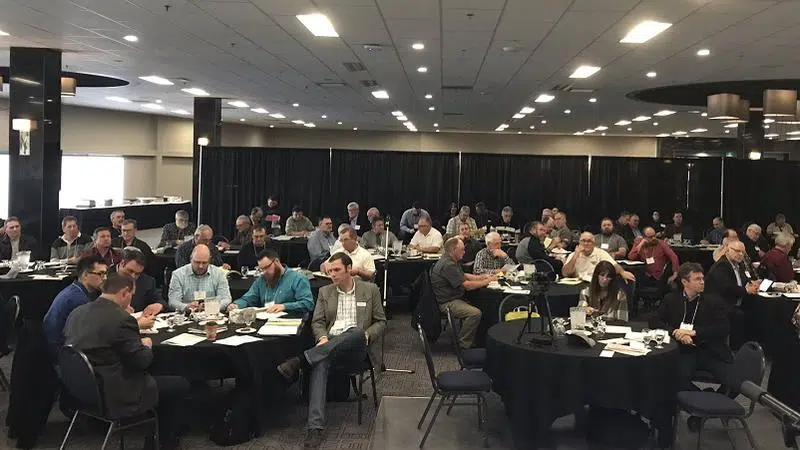
Prairie leaders forum discusses trade, harvest and support programs
Prairie farm leaders met in Regina to discuss harvest challenges, trade and business risk management programs.
It was part of a forum during the Agricultural Producers Association of Saskatchewan (APAS) annual general meeting.
Bill Campbell with Manitoba’s Keystone Agricultural Producers talked about the amount of crop that was severely downgraded by wet weather and the stress on farmers.
“The reality starts to hit home when you cannot market your crop and pay your bills. So, there’s a tremendous stress in the rural communities. We look at some of the issues that are ongoing. We know that Manitoba has a farm stress line. The calls are up,” Campbell said.


